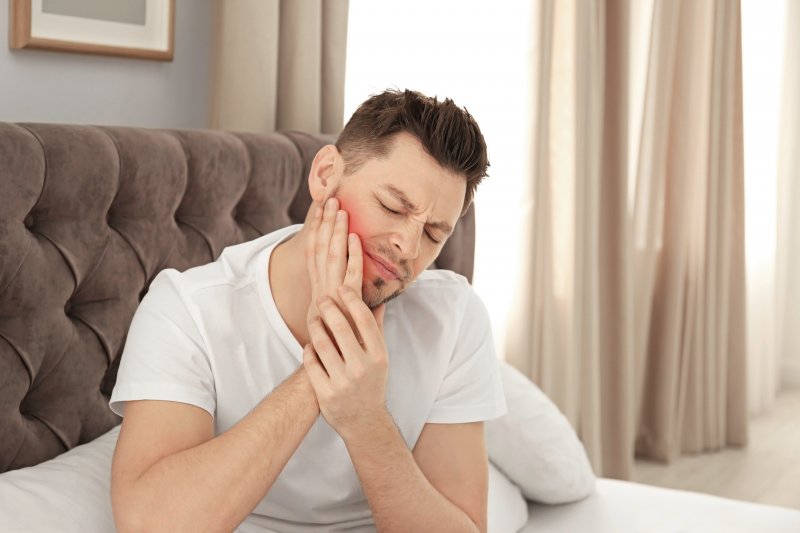
If you’re currently suffering from jaw pain on a daily basis, there’s a good chance that you’re having problems sleeping as well. Research has found that 43% of patients with TMJ disorders also have sleep disorders, such as sleep apnea. This is not a coincidence; in many cases, the two conditions are actively contributing to each other. Fully understanding the link between TMJ and sleep apnea is essential when seeking out treatment for both.
What are TMJ Disorder and Sleep Apnea?
A TMJ disorder is a recurring problem with the temporomandibular joint that is responsible for the movements of the lower jaw. Symptoms include chronic jaw pain and limited joint mobility. You might also hear a clicking or popping sound whenever you open or close your mouth. It can sometimes be hard to figure out exactly what caused a TMJ disorder since there are several risk factors such as physical trauma or bruxism.
Sleep apnea is a common sleep disorder that involves pauses in your breathing while you’re asleep. Said pauses are generally due to the airway being blocked by relaxed tissues in the mouth or throat. When breathing stops, the body has to force it to restart by briefly waking up, interrupting the sleep cycle. The ultimate result is that you feel exhausted during the day while your overall health suffers.
How Can TMJ Disorder and Sleep Apnea Cause Each Other?
A TMJ disorder can arise as part of the body’s automatic response to sleep apnea. In an attempt to open the airway, the lower jaw is moved forward. Once breathing has resumed, the jaw returns to its normal resting place. Sleep apnea can cause dozens or even hundreds of pauses in your breathing in a single night, so your jaw will constantly be moving back and forth, putting excessive tension and stress on the jaw joints.
Researchers have also found that TMJ disorder is a potential cause of sleep apnea. When the jaw joint is misaligned, the tongue is more likely to fall into a position where it blocks your airway while you sleep, resulting in breathing pauses. This can potentially lead to a vicious cycle where both disorders are constantly making the other one worse. To protect your health, you should have your TMJ disorder and sleep apnea treated at the same time.
How Can TMJ Disorder and Sleep Apnea Be Treated?
There are several possible solutions for both disorders, but in many cases, a dentist can help you treat both at once with oral appliance therapy. Your personalized appliance will adjust your lower jaw in a way that keeps the airway open while also reducing strain on the jaw joints. You’ll enjoy a good night of uninterrupted sleep and give your TMJ a chance to recover.
Sleep apnea and TMJ disorder can both have a devastating effect on your health and your everyday life, but relief is well within your reach. Call your dentist today to schedule an appointment if you’re ready to say goodbye to jaw pain and poor-quality sleep.
About the Author
Dr. Thomas A. Gromling has a dental career that spans over 40 years, all of which has been spent right here in Stephens City. He has advanced training in obstructive sleep apnea treatment, and he also has extensive experience addressing different forms of TMJ disorder. If you are currently suffering from sleep apnea, chronic jaw pain, or both, you can schedule a consultation with Dr. Gromling by visiting his website or calling (540) 869-4377.
